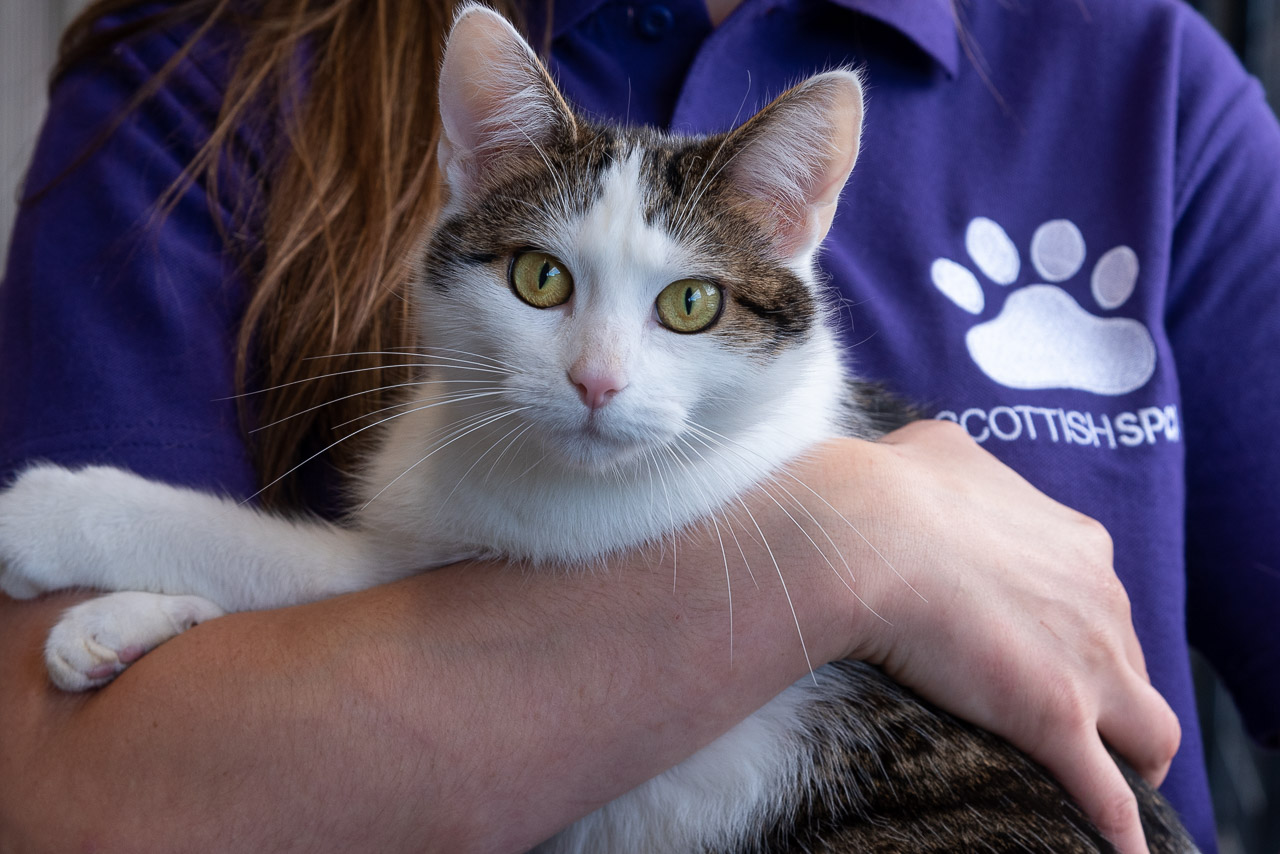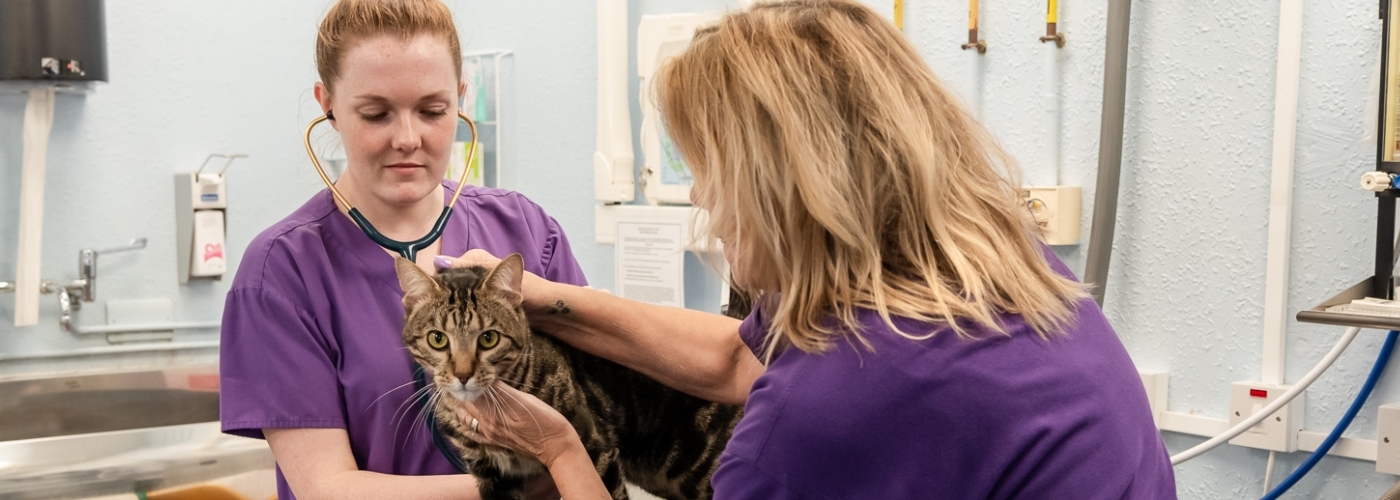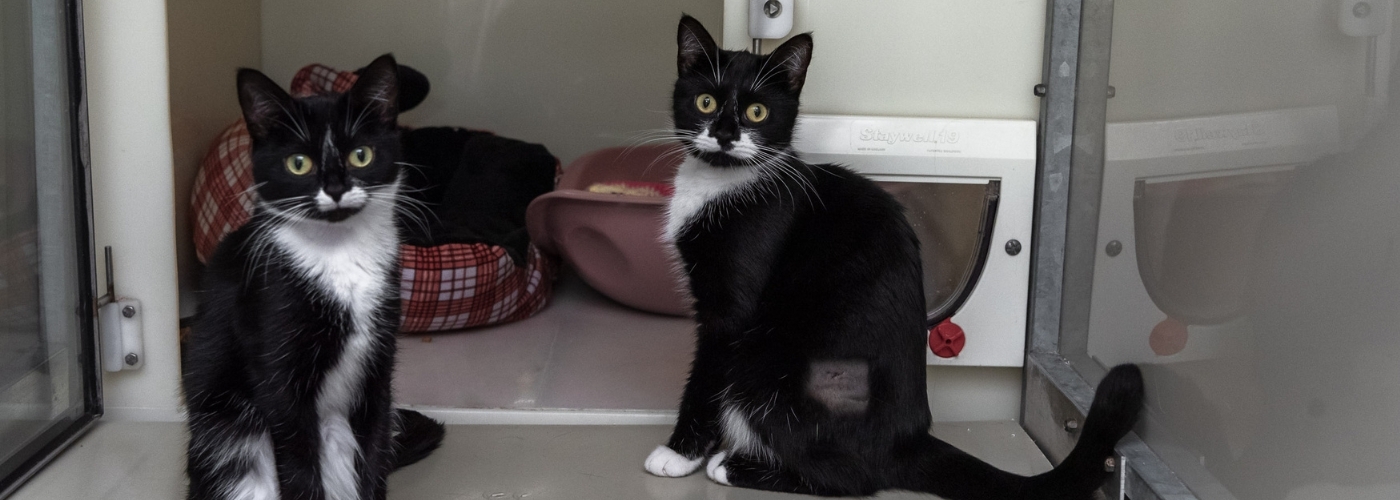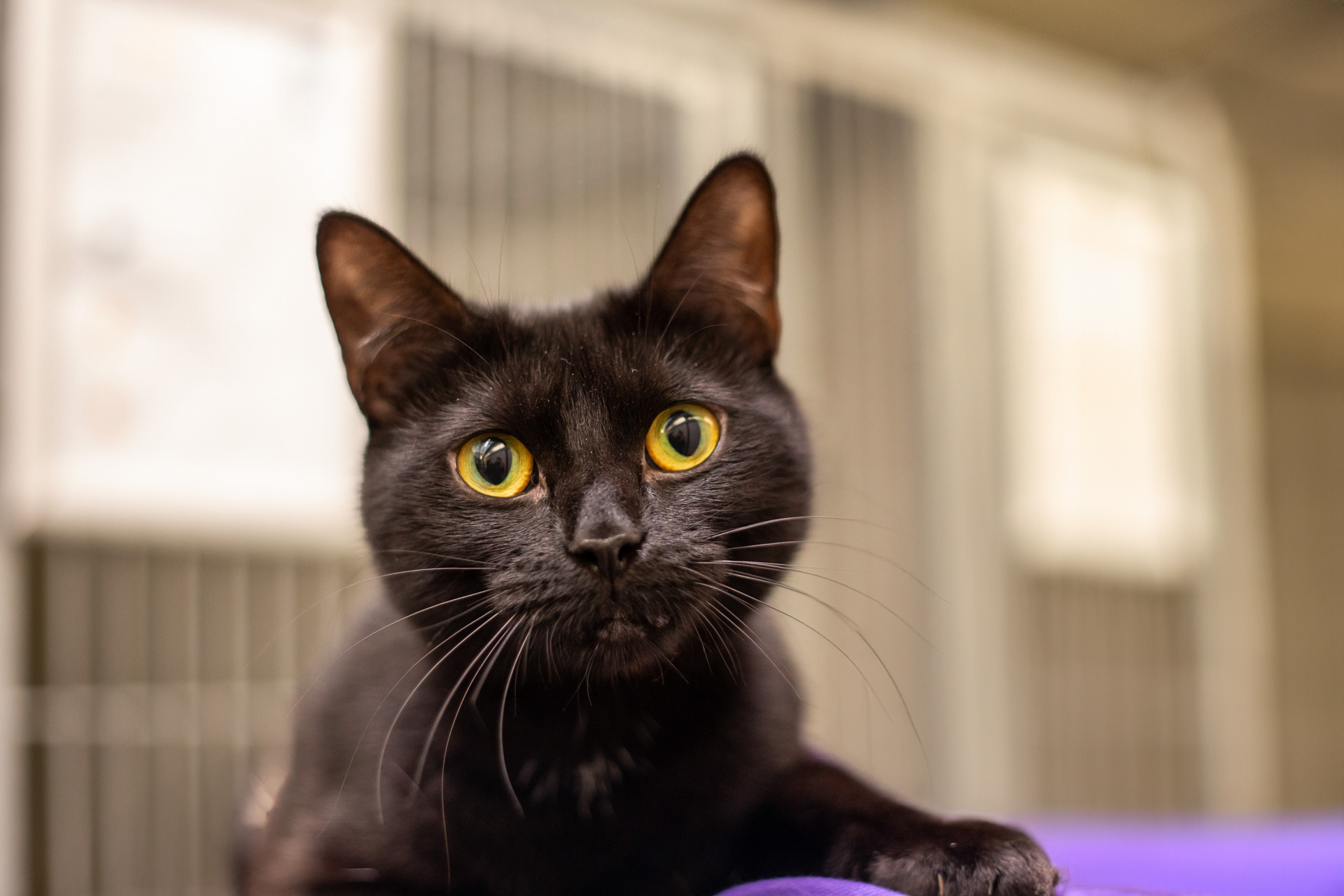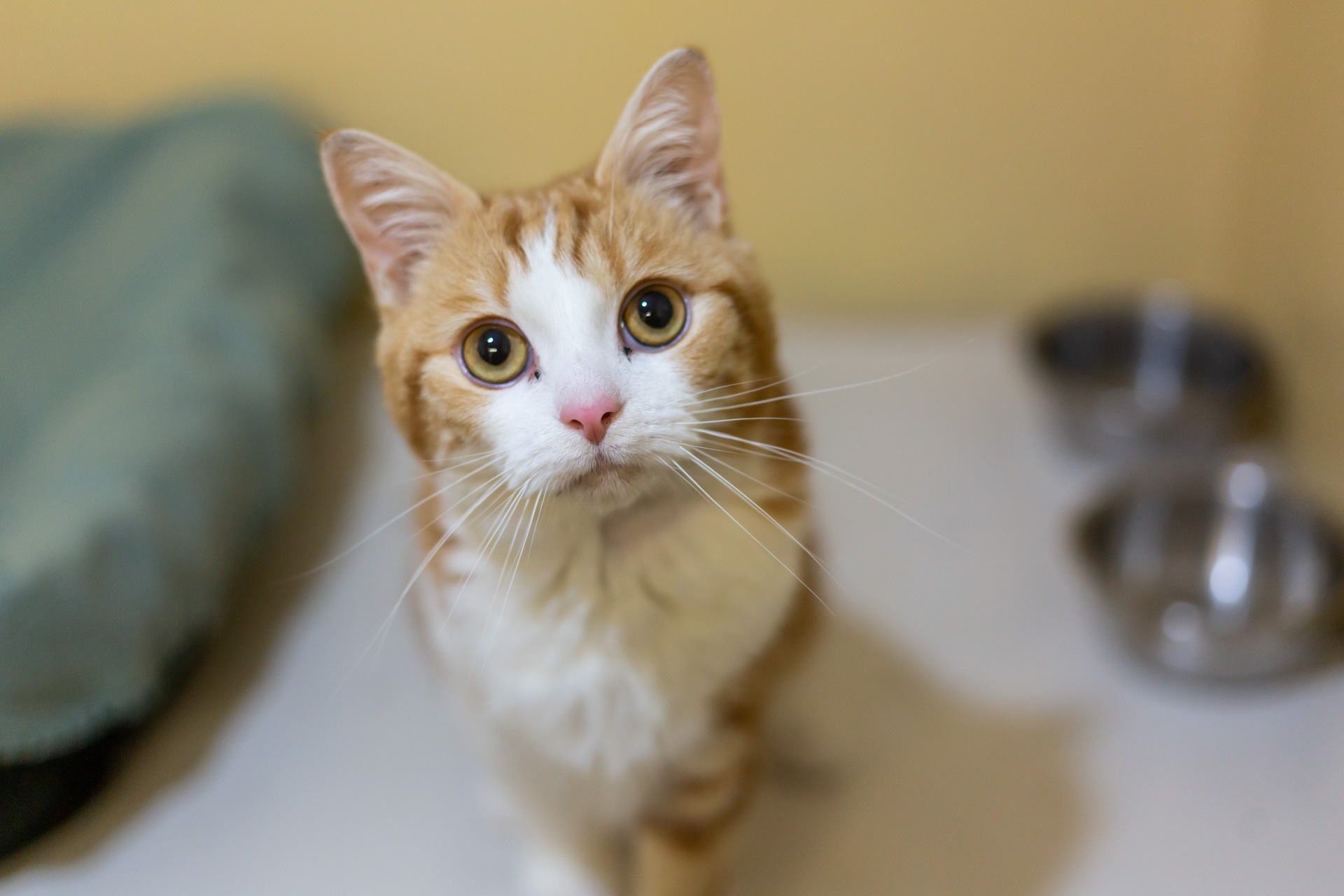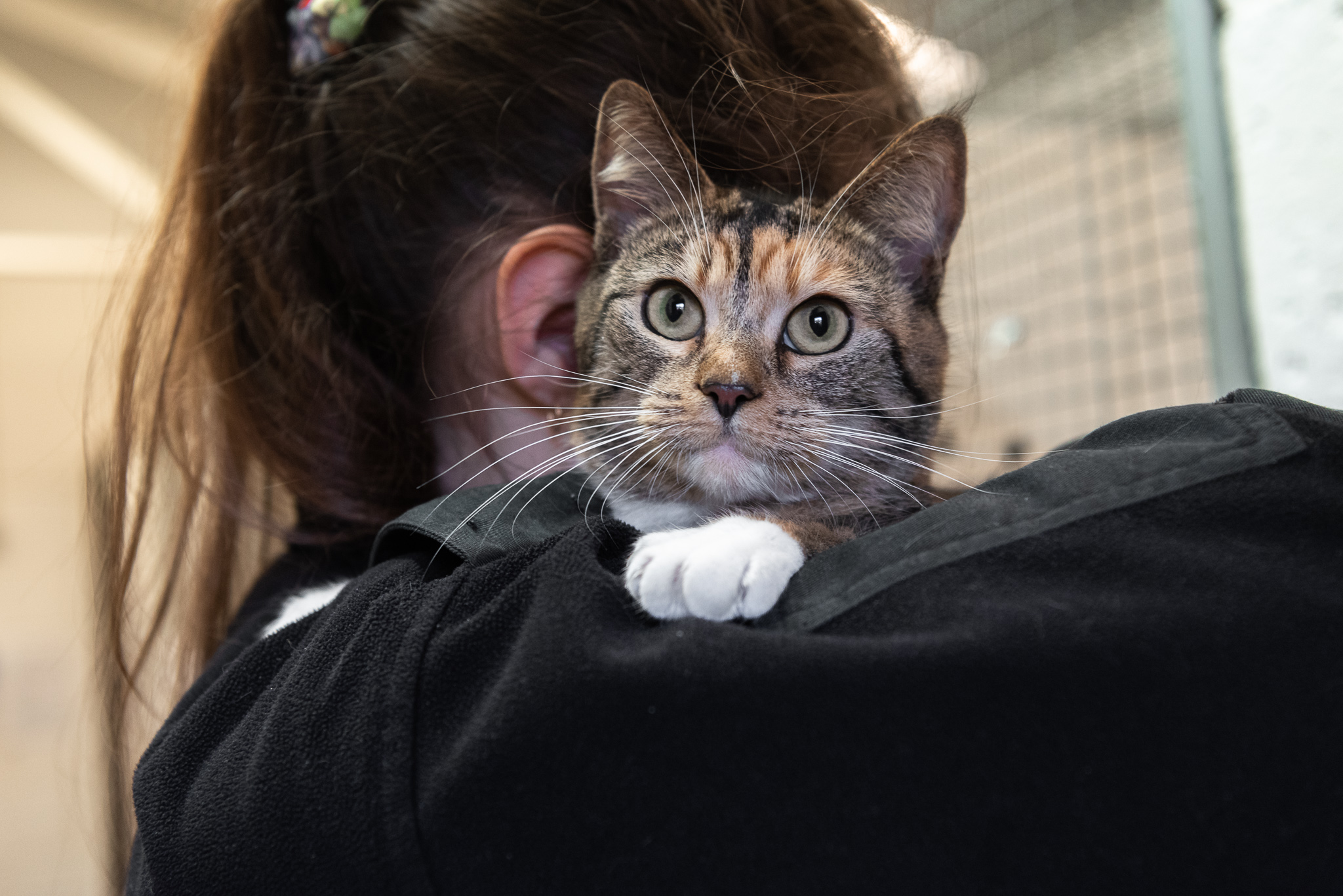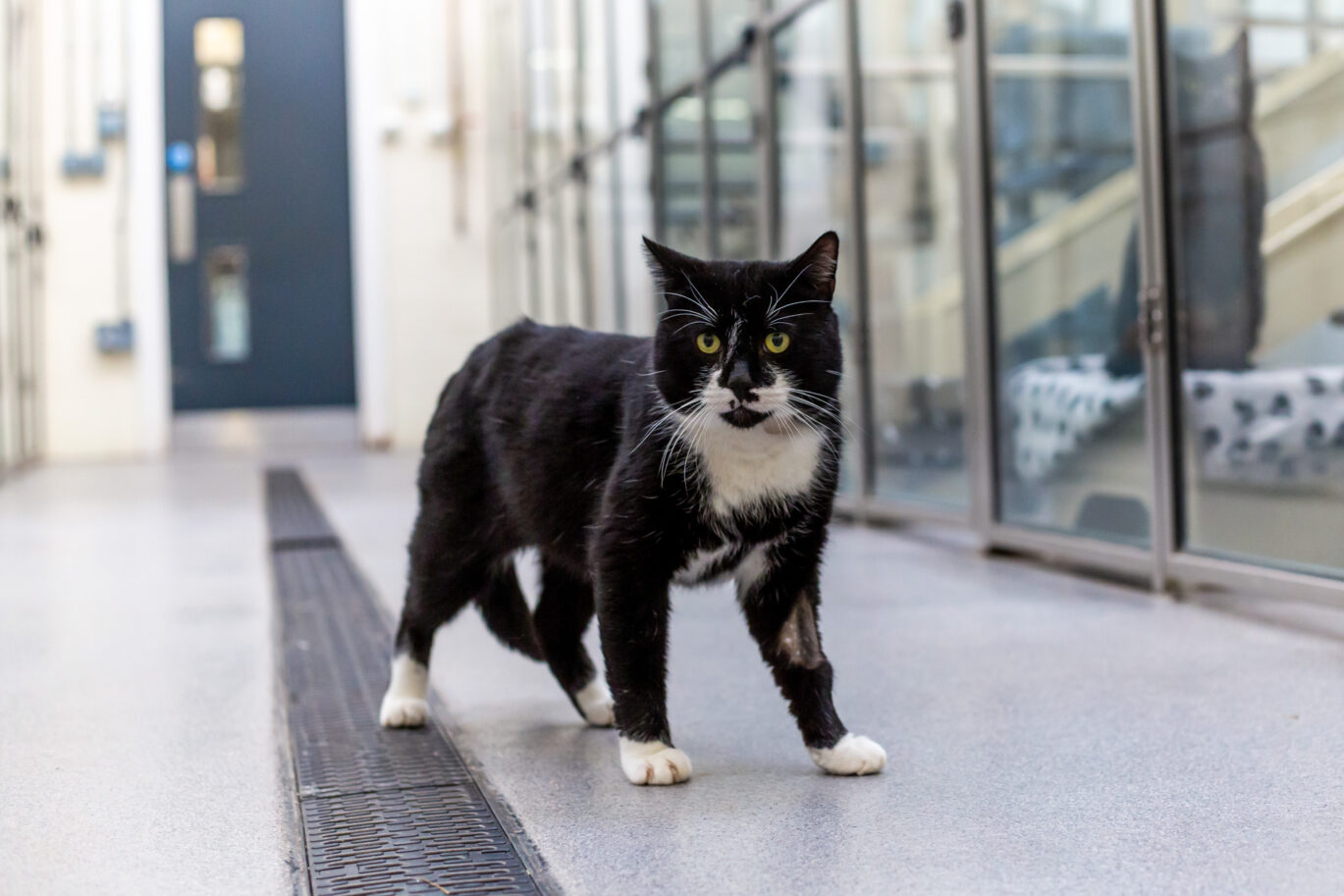
Cats
Almost two thousand cats come into our care each year, each with their own unique personality.
Whether you’re looking for a senior cat or a playful kitten, an outdoor explorer or a house cat, we’re confident that we can find a feline friend for you. If you’re interested in giving a cat a loving home, you need to carefully consider if a cat is the right pet for you.
Read through the pages about:
Getting a cat
Cat health care
Cat veterinary care
Litter training
For more information about adopting a cat read:
Pre-adoption advice
Care guide
Post-adoption & settling in advice
Introducing your cats
Introducing your dogs and cats
For information about the health of your cat, please view our factsheets below:
Allergic skin disease
Arthritis and Spondylosis
Brachycephalic Obstructive Airway Syndrome (BOAS) in cats
Cat flu
Feline Heart Murmurs
Fracture Repair
Hip Dysplasia
Hyperthyroidism in cats
Costs
First of all, please make sure you do your homework before making such a big commitment. It’s vital to seriously consider the costs involved in welcoming a cat into your home. Not only will you have the upfront expense of adopting the cat with all the essentials needed, but the monthly costs soon add up too. It’s estimated that cat owners can spend up to £1500 each year on food, litter, insurance and routine health care alone. You’ll also have to consider the veterinary costs involved in keeping your cat safe and healthy, such as microchipping and neutering.
When adopting a cat or kitten from one of our Centres, neutering and microchipping are included in the adoption fee. We always encourage owners to insure their pets and you will receive four weeks of free insurance from PetPlan.
When adopting a cat or kitten from one of our Centres, neutering and microchipping are included in the adoption fee. We always encourage owners to insure their pets and you’ll receive four weeks of free insurance from PetPlan.
Time and effort
Before getting a cat, it’s also important to understand how to meet their welfare needs and the time that goes into caring for a furry friend. Cats can be independent animals but they still require lots of physical and mental stimulation. In particular, kittens from four to six months crave human interaction. Cats who are left alone for long periods can display signs of loneliness and anxiety.
Playing is essential for a cat’s mental and physical wellbeing, especially if they are a house cat, so you should make sure you have time for this each day. Cats also require regular grooming, especially long-haired or older cats.
Environment
Another thing to consider is whether your home and surroundings are suitable for a cat. Cats tend to prefer a quiet, calm environment. If you’re planning to move house or have renovation works carried out, it’s advisable to wait until the environment is right to welcome a cat or kitten into.
Likewise, it’s safer for outdoor cats to live away from busy roads. If there are other cats living nearby, you could ask your neighbours if it’s a safe area. Check that there is a vet nearby that you can reliably travel to and speak to them about registering your cat.
Your cat’s natural instincts can lead to certain unwanted behaviours in and around your home. Scratching furniture, spraying or leaving their prey on your doorstep can be stressful or upsetting for owners but you should never punish your cat for displaying their natural behaviours. Instead you can try minimising the impact on your living space by tiring your cat out with play, providing plenty of scratching posts or putting a bell on their collar to warn wildlife.
Other Pets
Cats are very territorial animals. If you already have pets, adding a cat or kitten to your household could cause stress and upset to any felines already in the home.
Many cats don’t need or want company from another pet, and are perfectly happy being the only animal in the home. Others don’t mind sharing their home with another pet so long as introductions are done gradually.
Careful consideration needs to be given if you are thinking about adding another feline to a household with a resident cat. The nature of the existing cat must be taken into consideration. Also, matching similar energy levels and temperaments is a good idea. We can adopt cats to homes with dogs but this depends on their temperament and previous circumstances.
When introducing a new cat to other pets, it’s important to do so gradually and to have a plan should the introductions prove unsuccessful. You may need to persevere longer than expected or make adaptions to accommodate both pets. If living together is causing distress or compromising the welfare of your pets, you would need to seek the help of a behaviourist or consider adoption.
Responsibility
Having a cat is a big responsibility even when you’re away from home.
You need make sure your cat will still be cared for if you go on holiday or need to spend time away from your house so look into reliable pet sitting services or boarding facilities in your area.
Cats can live into their twenties so it’s important that you understand the commitment you’re making. It’s also wise to have a plan, should your cat outlive you. Our free Forever Care service gives owners peace of mind that we will take your pet into our care if you pass away or can no longer care for them.
Where should you get a cat from?
There are always cats and kittens in our Centres looking for their forever homes. We strongly encourage any potential new owners to consider adopting one of our animals. Each month, we take in over oner hundred and sixty felines of all ages, temperaments and lifestyles so we’re sure you’ll find a cat to suit your home. Remember to keep checking the website as we have new cats ready for adoption daily.
When you adopt a cat, they will have been fully vet checked, neutered (subject to age and veterinary advice) or a voucher issued, treated against fleas and worms, microchipped, and vaccinated. We also include free pet insurance for four weeks. Owners have the option to extend this into lifelong cover, which many insurers do not offer.
We may not always have kittens available due to high demand and we understand that you may be looking for a specific breed that we might not have at our rescue centres. However, we would strongly encourage you to keep an open mind. Adult or senior cats are often less time-consuming than kittens, and we believe that rescue cats make great pets, regardless of breed or age.
If adoption isn’t an option for you, please ensure you are purchasing from a responsible breeder. A reputable breeder will be able to provide paperwork on the kitten’s veterinary history and tell you about the level of interaction the kitten has had with people and other animals.
Warning Signs
Low-welfare kitten dealers can go to great lengths to convince buyers that they are reputable. Look out for these warning signs.
1. Ads on social media sites or online selling platforms that have kittens readily available. Responsible breeders usually have websites but do not try to sell kittens online; they typically operate waiting lists and will invite owners to meet kittens by appointment.
2. The kitten looks too young to be away from their mother. A kitten needs to be at least eight weeks old and finished weaning before they are separated. Their eyes should be open and they should be bright, alert and moving around with no problems.
3. An irresponsible breeder may rush you into parting with cash in exchange for a kitten.
4. Never pay a deposit for a pet you have not met.
5. No sign of the mother. They may try to excuse this by saying that she is at the vets, asleep or outside.
6. The mother is not interacting with her kittens.
7. A low-welfare kitten dealer may offer to deliver the kitten to your home or meet you somewhere like a car park. However, a reputable breeder should allow you to see the animal in the location where they have been living. Beware of excuses. They may say they will be passing by anyway or claim to be unavailable at another time.
8. They may dismiss your concerns about the kitten’s health.
9. They won’t be able to provide paperwork or certificates for vaccinations, microchipping or worming. Do not accept being told paperwork will be forwarded on at a later date.
Reintroducing your cat to the outdoors
When adopting a cat that is used to going outside, it’s vital that they are allowed to continue living an outdoor lifestyle. You may need to make adjustments to your home, for instance, having a cat flap fitted or providing outdoor shelter if this isn’t an option.
We would advise a minimum settling-in period of three weeks before letting your cat outside again.
Ensure that your cat is very settled in the home and you have established a bond. Kittens should not be allowed outdoors until they have been neutered and microchipped.
Cats are not legally required to wear a collar. However, if you are especially worried about your cat getting lost, a quick release collar with an ID tag is recommended. These are designed to break off should your cat get caught on something. GPS tracking collar attachments are also available.
Even if your cat goes to the toilet outside, they may still prefer to use a litter tray. This is particularly common during poor weather, as they get older or if another cat is bothering them.
When you first let your cat out, do so before they have had breakfast, using food to entice them back into the house.
If your cat has tested positive for FIV (feline immunodeficiency virus), they must remain indoors to prevent them from picking up other illnesses. Only cats who have tested positive for FIV will be available for adoption to indoor homes. Keeping them indoors also helps to stop the spread of FIV to healthy cats.
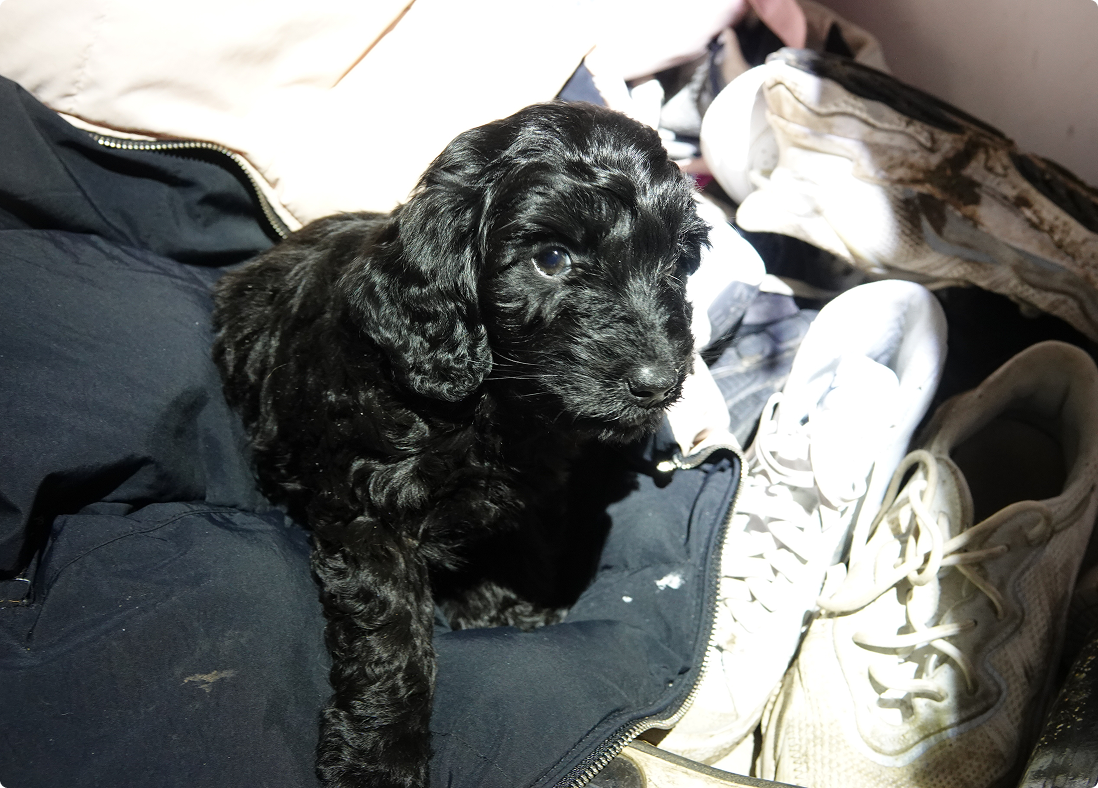
Puppies across Scotland need your help
Please consider giving a monthly donation today. Give Scotland’s animals the gift of safety this winter and beyond. The criminals involved in the low-welfare puppy trade never stop. And with your help, neither will we. Every £1 matters to puppies like Winnie.
